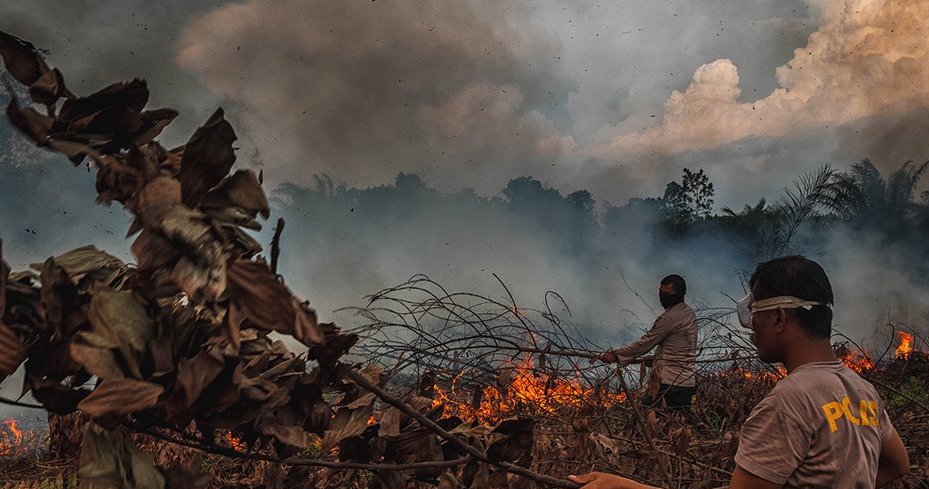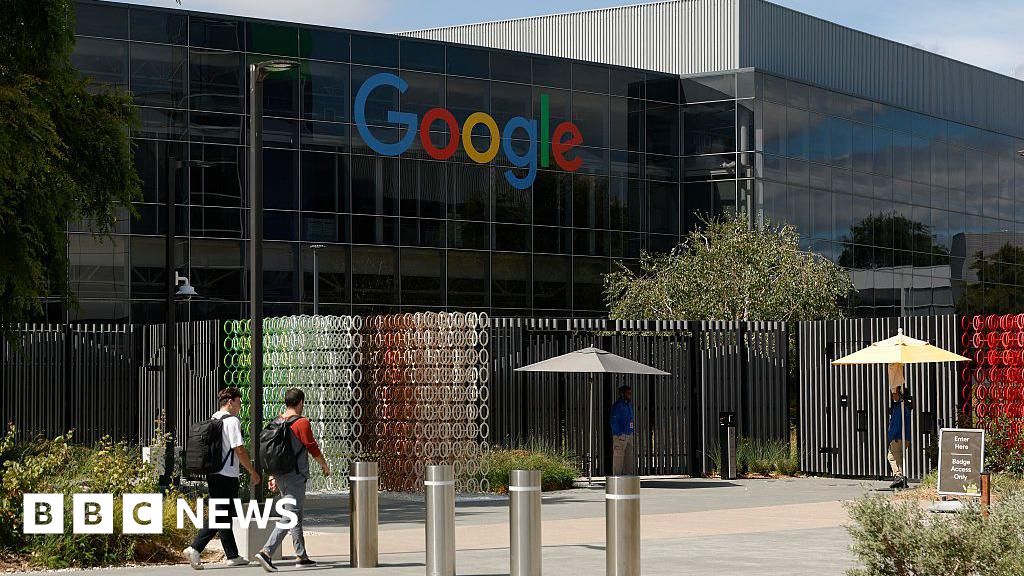Shortly after you finish celebrating the arrival of next year, a plague will rock up. Well, the full version of Pathologic 3, a game in which you play a doctor tasked with saving a town from a mysterious contagion will rock up….
Blog
-

The Strad – Lighting up the room: the Academy of St Martin in the Fields Chamber Ensemble in Los Alamos
Discover more Featured Stories like this in The Strad Playing Hub
It was a rainy afternoon in the city that gave birth to the atomic bomb when the Academy of St Martin in the Fields (ASMF) Chamber Ensemble took the stage. Presented…
Continue Reading
-
Shehbaz Sharif condemns terrorist attack on anti-polio team in Swat – RADIO PAKISTAN
- Shehbaz Sharif condemns terrorist attack on anti-polio team in Swat RADIO PAKISTAN
- Levies constable shot dead while guarding polio team in KP’s Swat: police Dawn
- Pakistan police officer killed in attack by gunmen on a polio vaccine team AP…
Continue Reading
-

‘We are witnessing a fire-sale of the world’s rainforests’ – global banks earn billions from deforestation
New Global Witness research exposes glaring contradiction at the heart of forest finance, as Brazil prepares to launch flagship tropical forest fund at COP30
Financial institutions have made US$26 billion from financing deforesting companies since the Paris Agreement was signed in 2015 – averaging around $7 million every single day – according to a new report released by Global Witness today.
The investigation, based on data from Dutch research consultancy Profundo, reveals how some of the world’s biggest financial institutions – including Vanguard, JPMorgan Chase, BlackRock, BNP Paribas and HSBC – have reaped billions through investments, loans and issuance underwriting services provided to 50 companies accused of forest destruction around the world.
The findings represent the largest ever mapping of incomes related to deforestation, revealing the global financial system’s significant role in deforestation and the need for robust national rules to prevent deforesting businesses from receiving funds.
Overall, the analysis found:
- US banks earned the most globally, making $5.4 billion, with Vanguard, JPMorgan Chase and BlackRock topping the list.
- EU banks generated $3.5 billion, led by BNP Paribas and Rabobank, while UK banks made $1.2 billion, with HSBC, aberdeen Group and Schroders at the top.
- Together, banks in all other countries including Indonesia and Brazil earned $15.9 billion.
- Chinese financial institutions made $1.2 billion, almost entirely from credit-related deals and fees – despite the country’s green finance policy requiring banks to restrict lending for companies with ESG concerns.
All financial institutions named here were contacted by Global Witness. Their responses can be found in the main report.
Importantly, the $26 billion total includes only those incomes which represent each company’s deforestation-related activities. When considering all banking and investment services provided to these companies, across all of their lines of business, earnings climb to $104.7 billion.
Of the deforesting businesses across the six sectors analysed, the pulp and paper sector generated the highest income (48%) followed by palm oil (41%), then soya (4%), beef (3%), rubber (3%) and timber (1%).
The analysis cautions, however, that relative profits are not a direct reflection of a sector’s deforestation impact. For instance, beef production – though less capital-intensive than some of the sectors examined in this study, such as palm oil or pulp and paper – remains one of the world’s leading drivers of deforestation, even if meatpackers linked to deforestation appear to generate comparatively lower returns for financiers.
We are witnessing major banks bankroll a fire sale of the world’s rainforests. And they’re reaping obscene profits from the ashes.
Global Witness Forests Lead Alexandria Reid
Reid added: “Brazil has rightly grasped the vital need to turn the financial system from a threat into a lifeline for forests. But unless governments also act decisively to rein in this cash pipeline, initiatives like the TFFF will be fatally undermined by a deforestation economy that is not just surviving but thriving – precisely because it is so profitable.
“As long as tearing down forests remains more profitable than protecting them, the world will not meet its 2030 goal to halt deforestation, with catastrophic consequences for the climate.
“If world leaders want to change this, they must act now to shut down the profits fuelling this crisis.”
To calculate the figures, Global Witness and Profundo analysed hundreds of thousands of deals – worth a total of $184 billion over nearly 10 years – across six of the most damaging agri-commodity supply chains: cattle, soy, palm oil, rubber, paper and timber.
Nearly 4,000 financial institutions made a total income of $26 billion from financing deforesting companies from 2016 – 2024. This is more than double the UK’s entire climate finance expenditure between 2011 and 2021, and surpasses the 2024 GDPs of Madagascar and Namibia.
The findings come just weeks before COP30 in Brazil, where the host nation will launch the new Tropical Forests Forever Facility (TFFF) – a flagship fund that will invest a blend of public and private finance in global investments, using the returns to reward tropical forest nations who keep their forests standing.
If successful, the model could help close persistent finance gaps in forest conservation. But Global Witness warns that national governments seeking to support the initiative must regulate to stop harmful finance if they want to change the financial system from a threat to a lifeline to forests.
Despite most countries pledging to halt and reverse deforestation by 2030, forest destruction hit its highest level on record in 2024. Deforestation is the second largest driver of greenhouse gas emissions, after fossil fuels, yet weak regulation allows financial institutions worldwide to funnel money to destructive agribusinesses.
Notes to Editors:
Background:
Deforestation, which accounts for about 11% of carbon emissions, is expected to be a major topic at COP30, taking place this year in Belém, Brazil. In 2024, tropical primary forests were lost at about 18 football fields per minute – nearly doubling the 2023 rate – pushing the Amazon toward a potential irreversible ‘dieback’ tipping point.
More effort is required from national governments to meet their targets to end deforestation:
- The EU’s flagship deforestation law, due to enter into application at the end of 2025 has already been delayed by 12-months, but when in force will stop businesses from placing products grown on deforested land on EU markets. The law includes a future review of extending these obligations to the European financial sector, but the law remains at risk of additional delays.
- The UK passed a law in 2021 prohibiting the use of products linked to illegally deforested land, but it has yet to come into fully force. Once it does, the Treasury must conduct a review of the UK’s role in financing global deforestation.
- In the US, the SEC’s climate-related financial disclosure rules remain suspended, and attempts to pass the FOREST Act, an import regulation like the UK’s law banning imports grown on illegally deforested land, have stalled.
- In China, Green Finance Guidelines introduced in 2022 could be utilised to outline how banks should identify, monitor, prevent and control their environmental, social and governance (ESG) risks. However, the country remains the biggest international financier of companies that trade and produce goods linked to deforestation.
Overall, the finance sector remains largely unregulated in relation to deforestation, allowing banks and investors to back deforesting companies with little accountability.
Methodology
The analysis identified companies linked to deforestation and forest degradation by reviewing public reporting on firms listed in the Forests & Finance database, which tracks 279 high deforestation-risk companies across beef, palm oil, soya, pulp and paper, rubber and timber supply chains. Evidence was only considered credible if the company accused of deforestation had been given an opportunity to respond. This process resulted in a final list of 50 companies including major agribusiness firms — a full list of which can be found in the main report, along with any company responses.
Profundo then analysed the financing of these 50 companies across 343,903 financial deals, drawing on sources including Bloomberg, Refinitiv, IJGlobal, company filings and registries. The analysis covered credit-related income (from loans, revolving credit, and bond/share issuance underwriting since 2016) and investment-related income (from bond interest and share dividends up to May 2025). Where direct deal fee data was unavailable, standardised proxies were used.
To ensure figures only reflect earnings linked to deforestation, all income data was adjusted using Profundo’s “segment-adjustment” method. For example, if half a company’s revenue came from cattle ranching and half from chemical production, only 50% of its financing income was counted as deforestation related.
Continue Reading
-

Polygenic risk score blood test could indicate future risk of breast cancer
A PRS313 blood test could help predict if abnormal cells are likely to become breast cancerous or not.
A retrospective study utilizing the 313-SNP breast cancer polygenic risk score (PRS313) blood test has revealed that women…
Continue Reading
-
Noman's six wickets give Pakistan a big lead over South Africa in 1st cricket test – The Washington Post
- Noman’s six wickets give Pakistan a big lead over South Africa in 1st cricket test The Washington Post
- Noman six-for hands Pakistan advantage despite de Zorzi ton ESPNcricinfo
- Spinners dominate second day’s play as South Africa trail by 162…
Continue Reading
-

Google to build a $15bn AI data hub in India
Google’s parent company Alphabet will invest $15bn (£11.29bn) to build an AI data hub in southern India’s Andhra Pradesh state.
The facility, which will be set up in the port city of Visakhapatnam, is going to be a part of Google’s global network of AI centres spread across 12 countries.
“It’s the largest AI hub that we are going to be investing in anywhere in the world, outside of the United States,” Thomas Kurien, the CEO of Google Cloud, said at an event in capital Delhi on Tuesday, adding that the investment will be spread over the next five years.
The announcement comes at a time when US President Donald Trump has been asking American companies to prioritise domestic investment.
India has emerged as a key destination for AI data centres. The country’s low data costs and rapidly growing internet user base have made it a hub for cloud and AI expansion for tech giants.
Alphabet CEO Sundar Pichai said the facility “will bring our industry-leading technology to enterprises and users in India, accelerating AI innovation and driving growth across the country”.
A formal agreement to finalise the project will be signed on Tuesday, the Andhra Pradesh government said.
“It is a massive leap for our state’s digital future, innovation, and global standing,” said the state’s technology minister Nara Lokesh.
The project will combine cloud and AI infrastructure with renewable energy systems and an expanded fibre-optic network.
The project is part of the Andhra Pradesh government’s plan to develop 6GW of data centre capacity by 2029, according to Bloomberg News.
Data centres are physical facilities that house the computing and networking equipment that organisations use to collect, process, store, and distribute data.
They contain servers, storage systems and network equipment like routers and firewalls, along with the necessary power and cooling systems to operate them.
In Andhra Pradesh, the government has been offering subsidised land and electricity to attract global investors.
India’s data centre industry has grown rapidly over the past five years, crossing the 1GW capacity mark in 2024 and nearly tripling its 2019 level, according to global professional service firm JLL’s India Data Centre Market Dynamics 2024 report.
Follow BBC News India on Instagram, YouTube, Twitter and Facebook.
Continue Reading
-

Fortune’s MPW: Meghan, Duchess of Sussex, Selena Gomez, and the IMF—all on the same stage
Good morning from Washington. Today is Day 2 of Fortune’s Most Powerful Women Summit. From the speed of AI to the shifting policy environment, the theme of Leading in a Dynamic World resonates. There’s cause for concern: Angela Williams, the…
Continue Reading
-

Young Gun: Demiane Agustien | Young gun | News
Our Young Gun series gets to know the academy youngsters kicking off their careers at the Sobha Realty Training Centre.
Demiane Agustien spoke to us recently about his early career in Eindhoven and his time in Premier League academies while his…
Continue Reading

